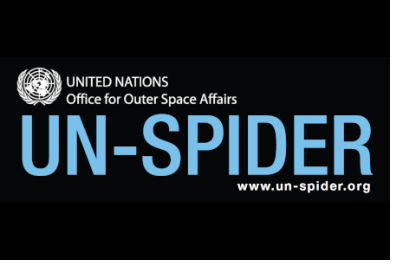
United Nations Office for Outer Space Affairs (UNOOSA)
United Nations Platform for Space-based Information for Disaster Management and Emergency Response (UN-SPIDER)
Center for Remote Sensing of Land Surface (ZFL), University of Bonn
German Aerospace Center (DLR)
Link to registration: https://indico.un.org/event/1007916/
Agenda
To access the agenda (pdf), click the link here.
To access the report (pdf), click the link here.
Background
Natural and man-made disasters cause tremendous damage to societies around the world. They lead to loss of lives and property, displace people from their homes and destroy livelihoods, and disrupt sustainable development efforts worldwide. In recent years, climate change, extreme weather, population growth, and urbanization have led to an increasing number of people being threatened by natural disasters, and it has become a global challenge to mitigate disaster risks and reduce the loss of people's lives and property and environmental damage. Developing countries are particularly susceptible to the impact of disasters as societies are more vulnerable and exposed, and less resilient to recover when disasters strike.
In 2019, The UNOOSA, through its UN-SPIDER programme, and the Center for Remote Sensing of Land Surfaces of the University of Bonn (ZFL) launched the “Spaceborne Earth Observation Applications for Emergency Response and Disaster Risk Reduction” (SPEAR) project to understand needs, develop solutions and strengthen national capacities in using space-based information for disaster monitoring and prevention in Africa in line with international and regional frameworks. The UN-SPIDER Bonn International Conference marks the end of the first phase of the SPEAR project (2019-2024) and will allow for a recap, summaries of activities and achievements, and exchange of experience and lessons learned. Furthermore, the conference aims to offer room for discussions, to collect feedback and suggestions on the way forward for the next project phase, which is planned to be started in 2024.
Thematically, the conference will lay emphasis on early warning systems for disasters which are a key asset to address the challenges of coping with natural and man-made hazards. The topic has received widespread attention worldwide. For example, Goal 3 "Ensure healthy lives and promote well-being for all at all ages" and Goal 13 "Take urgent action to combat climate change and its impacts" of the 2030 Agenda for Sustainable Development encourage countries to develop early warning systems; Article 7 "Enhancing adaptive capacity, strengthening resilience and reducing vulnerability to climate change" and Article 8 "Loss and Damage associated with Climate Change Impacts" of the Paris Agreement also place a high priority on strengthening early warning systems; the Sendai Framework for Disaster Risk Reduction 2015-2030 explicitly calls for the development of multi-hazard early warning systems to improve their availability. At the same time, in recent years, the international community has launched extensive discussions on topics such as "early warning, early response" and "early warnings for all", hoping to improve society's ability to prevent and respond to disaster risks by developing a sound mechanism for early warning and emergency response to natural disasters led by the government, participated by the society and coordinated by various parties. In March 2022, the UN Secretary-General launched the “Early Warnings for All” initiative which calls for every person on Earth to be protected by early warning systems by 2027.
Advances in science and technology have brought new development opportunities to improve the accuracy and effectiveness of early warning. As an all-weather, all-day, full-coverage technology for Earth observation, space-based technologies play an irreplaceable role in disaster risk management, especially in disaster risk identification, assessment, monitoring, and early warning. Additionally, the quality of satellite sensors, availability, and access to and use of satellite imagery and Earth observation services has significantly improved in recent years, with more and more space agencies embracing open data policies that facilitate access to archived and up-to-date imagery.
Strengthening technical skills and setting up institutional and inter-institutional structures is important to ensure that the benefits of space-based information reach civil protection agencies and other actors involved in disaster management activities. Partnerships can facilitate access to data, for instance through emergency mechanisms such as the International Charter Space and Major Disasters and the Copernicus Emergency Management Services.
This International Conference will take up the issues raised above and continue identifying challenges, highlight solutions, and encourage partnerships for using space technologies in early warning systems.
| Attachment | Size |
|---|---|
| UN-SPIDER Bonn International Conference 2024 - Agenda (352.82 KB) | 352.82 KB |
| UN-SPIDER Bonn International Conference 2024 - Report (723.93 KB) | 723.93 KB |
